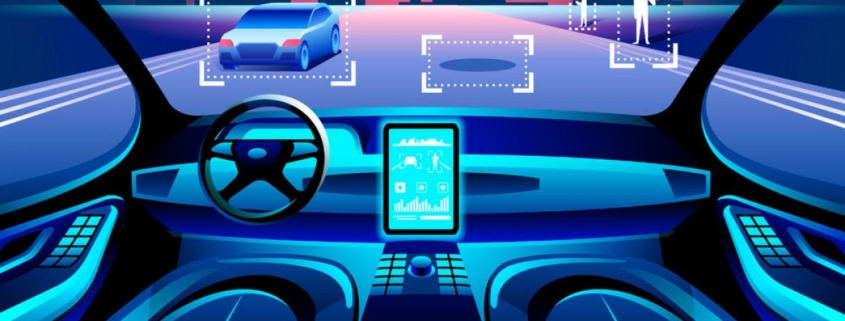Car Infotainment Systems: An Underreported Source of Driver Distraction
There has been a significant increase in the demand for innovative and engaging infotainment systems in modern cars and car manufacturers cannot help but oblige for the sake of sales and profits. State and federal laws prohibit drivers from playing games, sending text messages, and talking on their cell phones when they are behind the wheel.
Unfortunately, the legislation has its blind spots in the form of car infotainment systems. This is even when Florida has passed a law banning loud music in cars that can be heard 25 feet away. You should consult with an experienced car accident attorney in Florida to learn more about your rights and pursue maximum compensation if you have suffered injuries because of a distracted driver’s negligence.
Dangers of Distracted Driving with Car Infotainment Systems
You may be surprised to note that there is no other specific law against using motor vehicle infotainment systems in Florida. This is not to say that people injured due to the careless or negligent actions of a distracted driver don’t have rights.
If you have suffered injuries in an accident where the other motorist that was using an infotainment system, you may be entitled to compensation through a personal injury lawsuit or insurance settlement.
Vehicle infotainment systems usually provide a single point for drivers and other passengers to control music, phone calls, and air conditioning among other things. Typically, these systems are designed to reduce driver distraction by placing controls for entertainment and other critical tasks in a small area. Unfortunately, things don’t always work as intended.
The AAA Foundation for Traffic Safety recently conducted a study that found that infotainment systems can cause drivers to pay less attention to roads. This was prevalent in drivers of all ages despite their best intentions to remain focused on driving.
The state agencies in Florida and the federal government haven’t taken any specific steps or made any special laws curtailing the use of infotainment systems in vehicles. Section 316.303 of the Florida Code only forbids pre-recorded video entertainment content and television broadcast if it is visible from the driver’s seat when the vehicle is in motion.
In fact, section 316.003 exempts the following infotainment functions:
- Closed-circuit cameras such as rear-view cameras.
- Electronic map displays.
- Electronic display used in autonomous vehicles.
Like most states, Florida doesn’t have any legislation prohibiting drivers from adjusting controls and searching radio stations even when in heavy traffic.
Contribution of Infotainment Systems to Car Accidents
There is some type of infotainment system in almost every modern automobile. Anything that can be potentially distracting to a driver has the potential to result in an accident. When drivers fiddle with the infotainment system, they essentially take their minds and eyes off the road. This results in:
- Impaired ability to make fast decisions.
- Slow reaction times.
- Increased likelihood of missing potholes, stopped vehicles, and other roadway obstacles that may cause or facilitate an accident.
The National Highway Traffic Safety Administration (NHTSA) issued guidance in 2013 establishing the maximum time to be spent on infotainment tasks. It stated that no task should take more than a glance of 2 seconds to complete. The NHTSA recommended the blocking of particularly dangerous activities, such as watching videos and accessing social networks while the car was in motion.
Unfortunately, automakers often ignore these guidelines. Many infotainment systems in the US create a distraction that exceeds the recommended threshold set by the NHTSA.
Infotainment Systems in Florida and Personal Injury Law
Even though infotainment systems are not forbidden to use in Florida, there are still several laws in place against negligent and distracted driving. If a driver’s use of an infotainment system contributed to a car accident, an experienced Florida car accident attorney can highlight this fact in order to establish the fault of the other driver.
Whether the motorist was struggling with the car’s climate control or fiddling with radio stations, your attorney can show that they bear legal and financial responsibility for the crash. It can sometimes be difficult to prove that the other driver was distracted by the car’s infotainment system.
Your attorney can be helpful here by:
- Requisitioning surveillance camera footage, police reports, and eyewitness testimony.
- Obtaining electronic data recorder (EDR) information in case of commercial truck accidents.
- Hiring an accident reconstruction expert to piece together evidence that shows the other driver was distracted.
- Evaluating the type of infotainment system included with the vehicle’s make and model.
- Investigating whether any alterations or adjustments were made to the infotainment system by the motorist, which may have contributed to the accident.
- Subpoenaing the vehicle’s black box information to check which systems were in use during the crash.
- Accessing all available information to prepare a compelling case designed to maximize the settlement amount.
Time is important in infotainment-related car crashes. If you or a loved one suffered serious injuries in a Florida car crash, you should speak with a trained attorney to understand your legal choices.
It is important to act fast as vital evidence can get lost in car accident cases. You may even miss the statute of limitations for bringing a claim if you wait too long, making it impossible to recover anything.
Get Strong Legal Representation from Personal Injury Attorneys with a Proven Track Record
If you or a loved one has been injured in a car accident, speaking with an experienced attorney at Whibbs, Stone & Barnett may be the most important first step you take toward ensuring the compensation you deserve.
Our attorneys have the necessary legal knowledge and years of experience to prove the liability of the negligent driver and help the injured victims achieve maximum compensation. To request your free, no-obligation consultation, call us at 850-409-2834 or complete this online form.


